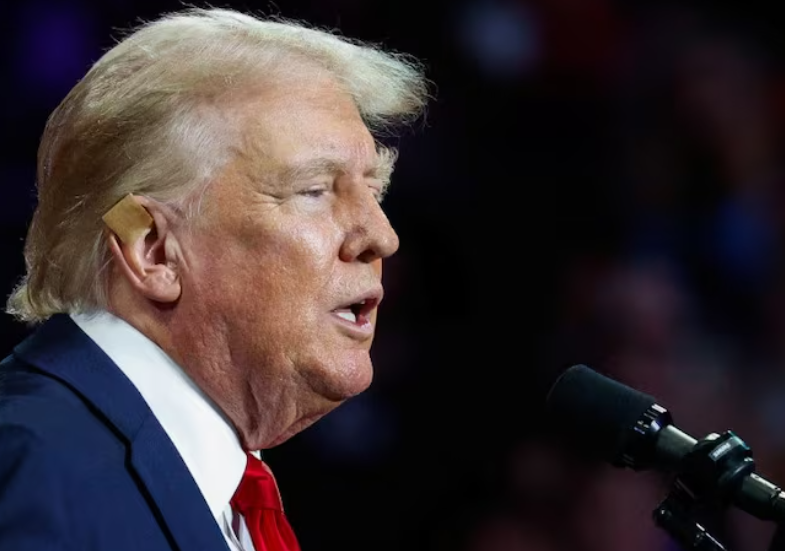In the span of 48 hours, the Trump administration has racked up at least four documented clashes with federal courts and legal norms—each one a potential violation of U.S. law—while the president himself escalates rhetoric that equates judicial pushback with sedition or treason.
It’s a stark irony: the man who once tweeted “no one is above the law” now oversees a White House that appears to treat court orders as optional, all while threatening death penalties for those who dare question his commands. For families caught in the crossfire—like the Venezuelan migrants dumped into an El Salvador prison against a judge’s explicit order—this isn’t abstract policy but lives upended by unchecked power.
The flashpoint came Thursday, November 20, 2025, when President Trump took to Truth Social to savage six Democratic lawmakers—all of them veterans—who released a video reminding military personnel they have a duty to refuse unlawful orders.
“SEDITIOUS BEHAVIOR FROM TRAITORS!!! LOCK THEM UP???” Trump wrote, adding that such actions are “punishable by DEATH.”

The lawmakers, including Sens. Mark Kelly (D-Ariz.) and Elissa Slotkin (D-Mich.), weren’t naming specific orders; they were invoking a bedrock principle of military ethics, enshrined in the Uniform Code of Military Justice, that no one must obey commands violating the Constitution. Trump’s response? A call for arrests and trials, echoing his past flirtations with authoritarian language that leaves even his allies uneasy.
But here’s the rub: If sedition is plotting against the government, what do we call an administration that openly defies judges? Over the past two days alone, federal courts have slapped down Trump’s moves on four fronts, each exposing a willingness to bend—or break—the rules he demands others follow.
First, a D.C. federal judge ruled Thursday that Trump’s months-long deployment of over 2,000 National Guard troops to patrol the capital’s streets was illegal, violating the District’s home-rule authority and Congress’s oversight of the Guard. U.S. District Judge Amy Berman Jackson called it an “unlawful incursion,” noting the troops had become a “permanent fixture” without local request—despite White House claims it was all about curbing “violent crime.” The order halts the deployment by December 11, pending appeal, but the damage is done: D.C. residents have lived under what critics call a militarized occupation since August. Imagine the chill—armed soldiers on your block, not because of a riot, but because the president says so.
Across the hemisphere, the administration’s aggressive anti-drug campaign has veered into extrajudicial killings. U.S. Southern Command lawyers warned that lethal strikes on suspected smuggling boats in the Caribbean amount to “extrajudicial executions,” yet the White House overruled them, greenlighting at least 21 attacks since September that have killed 83 people. The latest, on November 15 in the eastern Pacific, sank a vessel and left no survivors, per Pentagon footage. Trump hails these as victories against “narco-terrorists,” but international law experts—and even allies like the UK, now withholding intel—see war crimes in treating fishermen as combatants without trial. For the families of those lost at sea, often Colombian or Venezuelan laborers, it’s not heroism; it’s a drone strike away from home.
Immigration enforcement offers no respite. In D.C., Chief Judge James Boasberg revived a contempt probe Wednesday, November 19, into why three planes full of Venezuelan migrants—accused of gang ties—landed in El Salvador’s CECOT mega-prison in March, despite his mid-flight order to turn back. The men, 137 in total, endured months in a facility notorious for torture before a prisoner swap freed them. Boasberg, no stranger to Trump-era battles, wants sworn testimony: Who ignored his ruling? The Justice Department insists it was a “verbal” glitch, but the judge isn’t buying it. One deportee, Kilmar Abrego Garcia, was later charged with smuggling upon return—retaliation, his lawyers say, for the defiance. These aren’t faceless numbers; they’re fathers and brothers, yanked from U.S. soil and dumped into hell because a wartime law from 1798 was dusted off like a prop.
And in a twist that reeks of payback, a Maryland grand jury is now dissecting the administration’s own mortgage fraud probes—targeting Trump’s foes like Sen. Adam Schiff and N.Y. AG Letitia James. Investigators suspect allies like FHFA Director Bill Pulte and special prosecutor Ed Martin enlisted unauthorized outsiders—real estate tipsters and GOP operatives—to taint the cases, possibly leaking grand jury secrets. Schiff, accused of faking residency docs for a Maryland home, calls it a “smear” from a president he impeached twice. James, who sued Trump for fraud in his hush-money empire, faces similar scrutiny. A key witness, California realtor Christine Bish, told the jury she felt grilled not on evidence, but on her ties to Pulte and Martin—like the probe was hunting a conspiracy to frame the targets.
Perspective
This isn’t chaos; it’s calculus. Trump’s playbook—deploy first, litigate later—thrives on delay, turning courts into spectacles where he plays the victim. But for the average American, it’s exhausting: Guard troops eyeing protesters, migrants vanishing into foreign jails, and probes that feel like vendettas. When a president cries “treason” at judges upholding the law, it erodes the very oaths he demands from soldiers. History shows these fights rarely end well for the rule-breaker; they just scar the republic deeper. As Boasberg put it in court, “I intend to find out what happened.” We all should.

